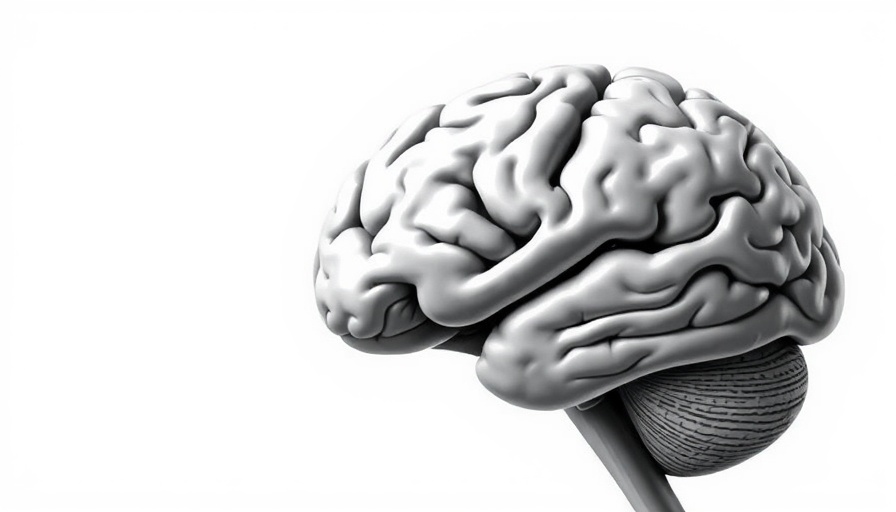
Understanding Depression and Cognitive Decline
Major depressive disorder (MDD) is not just an emotional struggle; it often carries the burden of cognitive deficits. Research shows that during acute depression, a staggering 94% of individuals experience problems with memory, focus, and overall mental processing. These challenges don’t merely fade away with treatment; persistent cognitive issues can linger, affecting 73% of individuals even after they achieve remission. This ongoing struggle can significantly impact daily life, but it often remains unnoticed in clinical settings.
The Role of White Matter in Brain Function
Key to our understanding of these cognitive issues is the brain’s white matter, which is crucial for communication between different regions. Composed primarily of myelinated axons, healthy white matter facilitates efficient information transfer. When changes occur within this structure, it could potentially influence cognitive abilities. Recent studies have indicated a strong link between white matter microstructure and cognitive symptoms in MDD, suggesting that these changes might not simply be side effects but rather integral to the disease's progression.
New Research Insights: Linking Microstructure to Symptoms
Innovative techniques like diffusion-weighted magnetic resonance imaging (dw-MRI) allow researchers to observe white matter changes at a microscopic level. By measuring fractional anisotropy (FA), researchers can glean insights about the health of white matter. Reduced FA often signifies degeneration, potentially pointing to underlying issues like demyelination or axonal damage. A recent study aimed to assess these changes over a two-year period, evaluating a sample of individuals diagnosed with MDD.
Findings and Implications for Mental Health Treatment
The study involved a diverse group of 881 participants, evenly matched by age and sex between those diagnosed with MDD and a control group. Both groups underwent MRI scans and cognitive assessments at the start and end of the two-year period. Notably, the participants included varying degrees of depression severity, from acute cases to those in full remission. The results indicated that cognitive performance changes were significantly tied to white matter microstructure variations.
Challenging Misconceptions: Depression and Cognition
It’s a common misconception that once individuals with MDD recover, their cognitive functions will return to normal. However, this research highlights that cognitive decline may be an ongoing issue stemming from alterations in brain structure. This understanding is crucial for developing comprehensive therapeutic strategies that address both emotional and cognitive dimensions of recovery.
Practical Steps for Mental Health Awareness
A greater focus on the cognitive aspects of MDD can lead to improved treatment frameworks. Educating patients about potential cognitive deficits encourages proactive discussions with healthcare providers. Strategies might include cognitive rehabilitation exercises, mindfulness practices, and lifestyle adjustments that promote brain health.
It’s essential to recognize that mental health is multifaceted, and a focus on cognitive health is a vital part of healing. By integrating knowledge about white matter microstructure and its impact on cognition into treatment plans, practitioners can provide more holistic care to individuals suffering from MDD.
Connect and Share Your Thoughts
As mental health bloggers, your platform plays a crucial role in raising awareness about depression and its cognitive aspects. Share these insights with your audience to spark discussions about mental health, cognitive challenges, and the importance of addressing both elements in treatment. Together, we can create a more informed and supportive environment for those navigating the complexities of depression.
 Add Row
Add Row  Add
Add 




 Add Row
Add Row  Add
Add 

Write A Comment